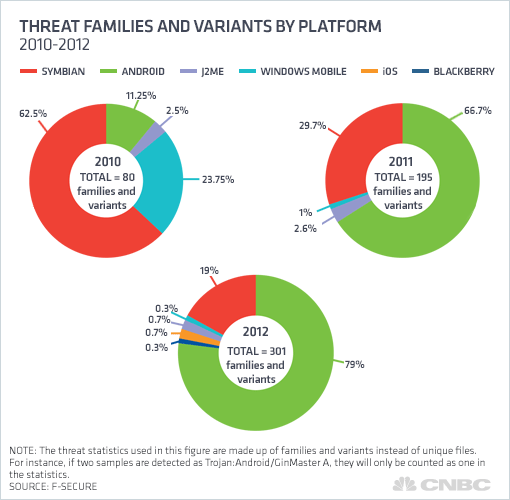When it comes to keeping their mobile devices safe and secure, consumers are playing a game of cat-and-mouse with cybercriminals.
Although most users are aware that mobile devices can be hacked, just as desktops or laptops can, many still don't take steps to protect themselves and the data on their smartphones and tablets, according to a study released Wednesday at the CTIA conference in Las Vegas.
(Read More: Cybercriminals Are Coming After Your Mobile Apps: Experts)
"We've seen an explosion of malware for mobile devices," said Chris Doggett, senior vice president of corporate sales at the security firm Kaspersky Labs. "There is a lot of catch-up that needs to happen with people's' mindset about mobile security, and that is what we are trying to bring to bear."
Eighty-five percent of consumers know that not having security software on a mobile devices puts them at risk of a breach, the study said, but only 31 percent have installed protective software on their smartphone or tablet.
Why the disconnect between awareness and action?
For one thing, people tend to ignore warnings until they or someone they know experiences a breach, Doggett said.
Apple has also contributed to a false sense of security, he said. Because smartphone adoption in the U.S.was largely driven by the iPhone—a very secure device—consumers think that all mobile devices are as safe as the ones on Apple's platform.




